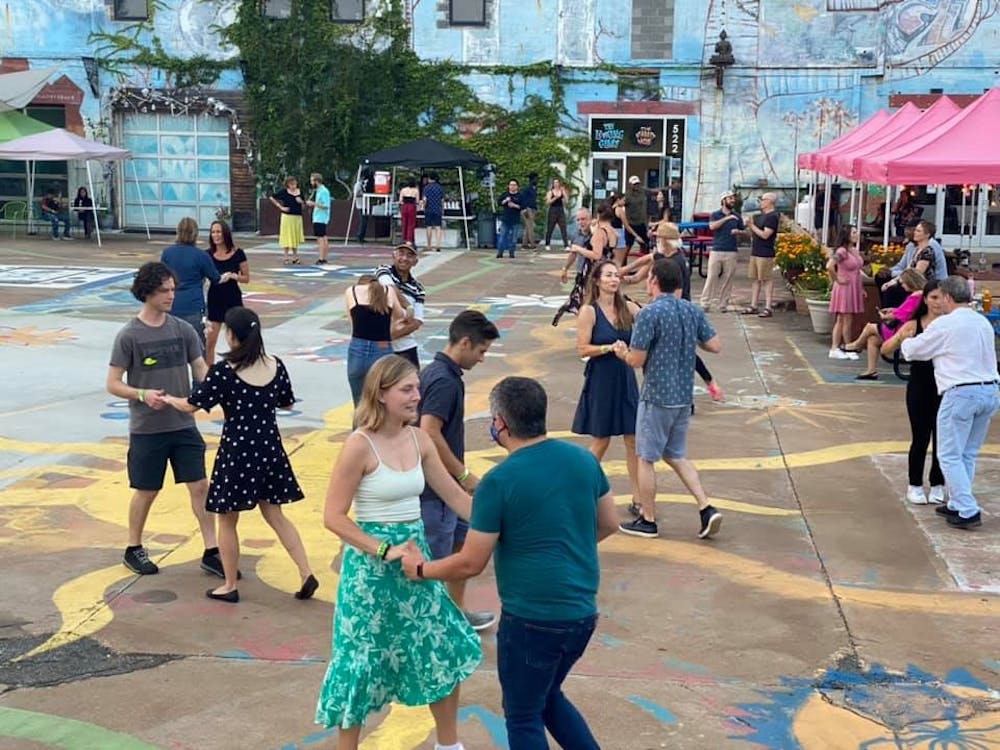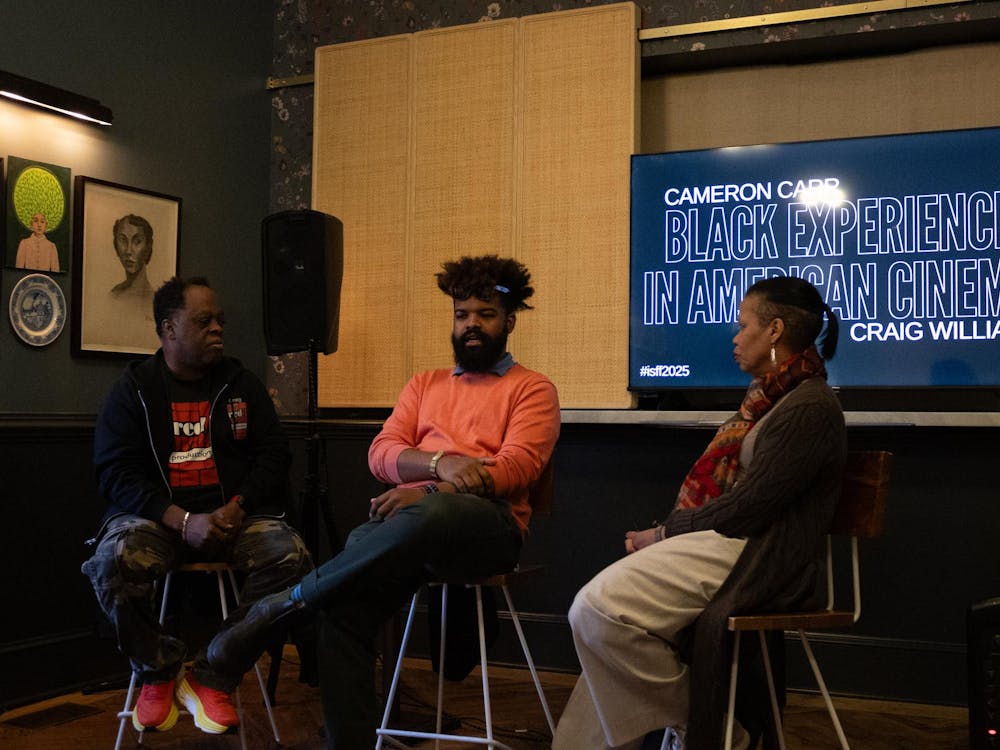Founded in December of 2001, The Charlottesville Salsa Club has hosted the longest-running consecutive salsa dance party in the state of Virginia, located at IX Art Park. Sunday Salsa Night and Bachata Wednesday have recurred weekly, all year round, for 20 years — with the exception of a year-long halt due to COVID-19.
“At this moment, we feel fearful of sharing with other people,” said Edwin Roa, co-owner of the Salsa Club.
Roa, like many business owners, was unsure if his club would survive the pandemic. He lost many loyal dancers after requiring proof of vaccination to get into the club.
“You know, people can believe whatever they want, but no matter whose side you’re on, you’re still depending on society,” Roa said. “You are a social being. It’s all about negotiating. That’s the beauty of dance — dance teaches us how to negotiate.”
Weekly parties commence with an hour-long lesson at 7 p.m., but attendees are welcome to stay as long as they want for an after-party full of dancing and socialization. If you don’t know what you’re doing, Roa is there to guide you through the lesson. As a professional dancer, performer, owner of Zabor Dance and native of Colombia, he is more than qualified. But to Roa, dancing is not always about skill — “sometimes you go to parties where it feels like a competition of who’s the best dancer. Here, it’s more like a family-oriented thing.”
Roa shared his attitude towards social dancing, which places no emphasis on competition.
“Social dancing is not about movement. It’s about connection,” Roa said. “So, that’s what it’s all about. We come to a party to meet people, not to show you how great I am. Simply put, you’re the best dancer if, in the span of two hours, you get to meet everybody.”
After entering into IX Art Park’s indoor space and being provided with an $8 wristband — discounted at $6 for students — dancers enter into a vivid atmosphere of fluorescent black lights and unique artwork. Dancers are paired up and choose between roles of lead or follow.
“If you’re a leader, it doesn’t mean you have to be the male,” Roa said. “Lead is creating motion. Following is actually reading that motion. Following doesn’t mean following blindly. Think of it as like a democracy.”
Leaders are taught to guide the follower through gentle pressure, or specific hand placement, to communicate the initiation of movement in a certain direction. Bachata and salsa are about connection and synchronization between partners. The follower is responsible for reading these movements, although they may choose not to.
Next, dancers are instructed on the footwork for a short, basic choreographed routine that formulates essential elements of Latin dance. Dancers are given easy-to-follow verbalizations that accompany 8-step counts to remember the routine. Roa then instructs the followers to switch the leader to their left, repeating the routine with new partners and circling around the room until each original pair reunites. By the end of the lesson, most dancers have met each other.
Roa used dancing as a way to meet people when he moved to the United States.
“Being a foreigner, the first thing I actually noticed here, is that I felt lonely, I felt like I was not visible,” Roa said. “Latino culture is all about having these gatherings, but there was not a lot of places to go.”
Craving community, Roa would habitually drive to Latin dance clubs in DC to meet people. Not knowing any English, Roa expressed himself through body movement and learned to connect with others nonverbally.
“The body doesn’t lie, words may, but the body doesn’t,” Roa said.
Roa hopes to bring awareness to his understanding of Latin culture in regards to music and dance as a form of communication, as well as its high valuation of community and togetherness. “Dance is the perfect excuse to meet people,” Roa said. “The whole point is to share a moment, everyone's the same.”
“I just want this to continue, to whatever capacity,” Roa said. “It doesn’t have to be something big. It’s just whatever we can do to attract people to not feel lonely.”
The Charlottesville Salsa Club serves as an inclusive and diverse community that welcomes people of all cultures to unite through movement. The club itself was named after the Spanish word for sauce, salsa, to denote the mixing of different cultures and Latin styles of music and dance.
Those who walk through the doors of Roa’s club are accepted as they are, and according to Roa, this is why the Salsa Club has lasted so long — dancing urges people to “take the veil off.”







